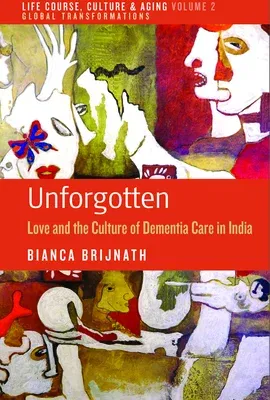Bianca Brijnath
(Author)Unforgotten: Love and the Culture of Dementia Care in IndiaHardcover, 1 July 2014

Qty
1
Turbo
Ships in 2 - 3 days
In Stock
Free Delivery
Cash on Delivery
15 Days
Free Returns
Secure Checkout

Part of Series
Life Course, Culture and Aging: Global Transformations
Part of Series
Life Course, Culture and Aging: Global Transformations, 2
Print Length
240 pages
Language
English
Publisher
Berghahn Books
Date Published
1 Jul 2014
ISBN-10
1782383549
ISBN-13
9781782383543
Description
Product Details
Author:
Book Format:
Hardcover
Country of Origin:
US
Date Published:
1 July 2014
Dimensions:
22.86 x
15.24 x
1.42 cm
ISBN-10:
1782383549
ISBN-13:
9781782383543
Language:
English
Location:
New York, NY
Pages:
240
Publisher:
Series:
Weight:
489.88 gm